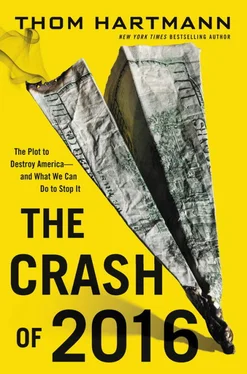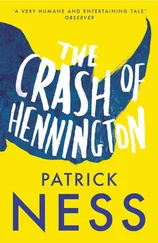Indeed, as Justice Hugo Black noted in 1938, “Of the cases in this court in which the Fourteenth Amendment was applied during its first fifty years after its adoption, less than one half of one percent invoked it in protection of the Negro race, and more than fifty percent asked that its benefits be extended to corporations.”
Thus began in a big way (it actually started a half century earlier in a much smaller way with a case involving Dartmouth University) the corruption of American democracy and the shift, over the 125 years since then, to our modern corporate oligarchy.
On January 21, 2010, in another five-to-four decision with the Republican five Justices on the winning side, the Supreme Court ruled that it is unconstitutional for Congress to pass or the president to sign into law any restrictions on the “right” of a corporation to pour money into political campaigns so long as the money isn’t directly given to the politicians, their campaigns, or their parties.
The majority decision, written by Justice Anthony Kennedy, was quite explicit in saying that the government has no right to limit corporate power or corporate “free speech.”
Kennedy began this line of reasoning by positing, “Premised on mistrust of governmental power, the First Amendment stands against attempts to disfavor certain subjects or viewpoints.”
He lays it out bluntly, writing, “The Court has recognized that First Amendment protection extends to corporations… Under that rationale of these precedents, political speech does not lose First Amendment protection ‘simply because its source is a corporation.’”
Two sentences later he nails it home: “The Court has thus rejected the argument that political speech of corporations or other associations should be treated differently under the First Amendment simply because such associations are not ‘natural persons.’”
Corporate executives and their lobbyists saw the value to them of this Supreme Court decision immediately. On February 7, 2010, the New York Times published an article by David D. Kirkpatrick titled “In a Message to Democrats, Wall St. Sends Cash to G.O.P.” The article explicitly quoted banking-industry sources who said that now that they could use their considerable financial power politically, they were experiencing “buyer’s remorse” over having given Obama’s presidential campaign $89 million in 2008: “Republicans are rushing to capitalize on what they call Wall Street’s ‘buyer’s remorse’ with the Democrats. And industry executives and lobbyists are warning Democrats that if Mr. Obama keeps attacking Wall Street ‘fat cats,’ they may fight back by withholding their cash.”
The article quoted several banking sources as saying they were outraged that the president had criticized their industry for the financial meltdown of 2008 and for their big bonuses. It wrapped up with a quote from Texas Republican John Cornyn, the senator tasked with raising money for the National Republican Senatorial Committee, noting that he was now making regular visits to Wall Street in New York City, because “I just don’t know how long you can expect people to contribute money to a political party whose main plank of their platform is to punish you.”
It was a loud shot across Obama’s bow, and within two weeks Obama had, just like Clinton, changed his tune on a wide variety of initiatives, ranging from taxes on the wealthy to banking, insurance, and pharmaceutical industry reforms.
Our democracy died thanks to Citizens United . Justices John Paul Stevens, Ruth Bader Ginsburg, Stephen Breyer, and Sonia Sotomayor—all of whom dissented from the Roberts majority in the Citizens United case—knew it, too. Justice Stevens wrote the main dissent in the Citizens United case.
Calling the decision “misguided” in the first paragraph of his ninety-page dissent, Stevens (and colleagues) pointed out that the majority on the court had just handed our country over to any foreign interest willing to incorporate here and spend money on political TV ads.
“If taken seriously, our colleagues’ assumption that the identity of a speaker has no relevance to the Government’s ability to regulate political speech would lead to some remarkable conclusions,” wrote Stevens. “Such an assumption would have accorded the propaganda broadcasts to our troops by ‘Tokyo Rose’ during World War II the same protection as speech by Allied commanders.” Stevens then pointed out a dangerous consequence of John Roberts’s ruling, writing, “More pertinently, it would appear to afford the same protection to multinational corporations controlled by foreigners as to individual Americans: To do otherwise, after all, could ‘enhance the relative voice’ of some (i.e., humans) over others (i.e., corporations).”
Justice Stevens further points out the absurdity of granting corporations what are essentially citizenship rights under the Constitution, suggesting that perhaps the next SCOTUS decision will be to give corporations the right to vote: “Under the majority’s view, I suppose it may be a First Amendment problem that corporations are not permitted to vote, given that voting is, among other things, a form of speech.”
Stevens recounted the history of the evolution of corporations in America, noting, “Corporations were created, supervised, and conceptualized as quasi-public entities, ‘designed to serve a social function for the state.’ It was ‘assumed that [they] were legally privileged organizations that had to be closely scrutinized by the legislature because their purposes had to be made consistent with public welfare.’”
Quoting earlier Supreme Court cases and from the Founders, Stevens wrote, “The word ‘soulless’ constantly recurs in debates over corporations… Corporations, it was feared, could concentrate the worst urges of whole groups of men.” Stevens was right: Thomas Jefferson famously fretted that corporations would subvert the republic.
In an incredible irony, Stevens even quoted Chief Justice John Marshall, the man who had first, in the 1803 Marbury case, given the court itself the power to overrule laws, such as McCain-Feingold, that had been passed by Congress: “A corporation is an artificial being, invisible, intangible, and existing only in contemplation of law. Being a mere creature of law, it possesses only those properties which the charter of its creation confers upon it.”
This decision was a naked handoff of raw political power to corporate forces by five unelected judges. Indeed, with this decision in place and the law of the land, the First Amendment now protects the “free speech” rights of the presidents of Russia and China and Iran to form corporations in the United States and pour millions of dollars toward supporting or defeating the politicians of their choice.
It protects the “right” of the largest polluting corporations on earth to politically destroy any politician who wants to give any more authority to the Environmental Protection Agency. It protects their “right” to elevate to elected status any politician who is willing to dismantle the EPA—or any other government agency that protects or defends the people of America from Royalist predation.
The behavior of the Roberts court in Citizens United eerily parallels the day in 1936 when Roosevelt said about the Economic Royalists, “In vain they seek to hide behind the flag and the Constitution. In their blindness they forget what the flag and the Constitution stand for.” Even before the Citizens United case blew open the doors to a corporate takeover of American politics, the corrosive influence of corporations’ having “rights” was already evident. Now these “unequal consequences” have been put on steroids.
Читать дальше












